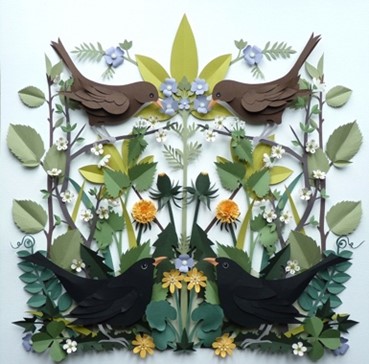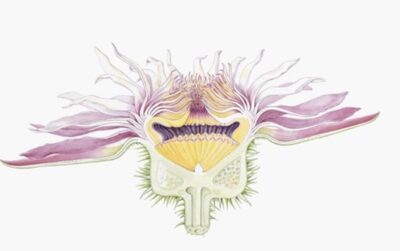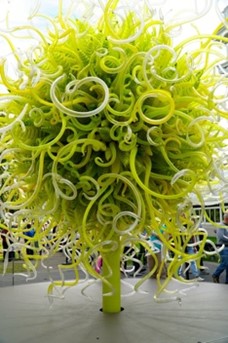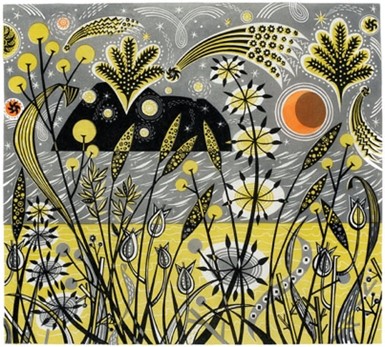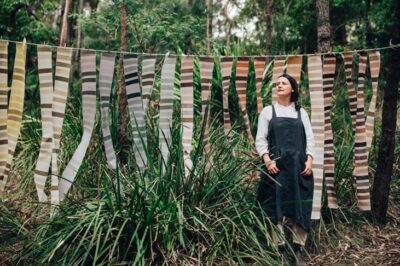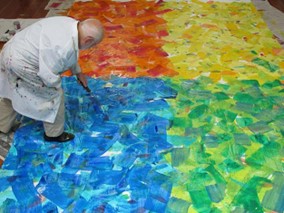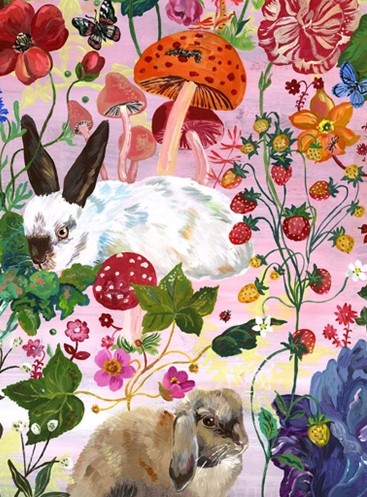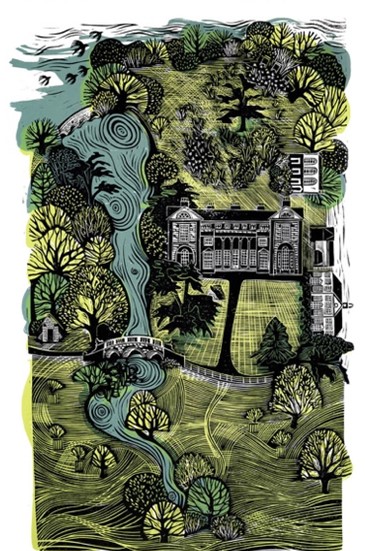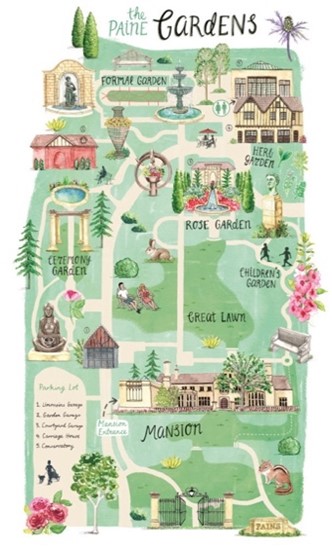This resource has been put together to help support a year-round programme of creative activities and projects, taking inspiration from nature and exploring Charnwood Forest. You will find that the resources are separated into four seasons, each with its own set of recommended resources, books and artists to explore, alongside suggested activities. This resource was created by Kate May Griffiths and Nicola Middler, as part of the partnership between Charnwood Art and Charnwood Forest Geopark, funded by the National Lottery Heritage Fund.
We hope you enjoy using this resource as a tool to help inspire and educate about nature throughout the year through fun arts and creative discovery!
SPRING
A series of activities to dip into on a weekly basis. For this season we are focusing on exploring plants and practicing the skills of observation and identification.
Locations to explore: The Outwoods, LE11 3YG and Rectory Wildlife Gardens, LE11 1PL
Link to resources: Woodland Trust – Tree Tools Worksheets
Artists to explore: Images contain hyperlinks to the artists’ websites
Activities:
- Pond dipping at Rectory Wildlife Gardens
- Use this pond dipping ID sheet to help identify what you find!
- Take along a sketchbook to draw what your discoveries – can you label them? Use watercolour paints to add a splash of colour to your sketches.
- Wildflower identification at Rectory Wildlife Gardens
- You can use the shapes and colours of the flowers you identify to create some paper flowers and make a bouquet, wreath or bunting. Take a look at Helen Musslewhite’s work for inspiration. Here is a link to a YouTube video to help you make a simple 6 petal flower as a starting point.
- Discover the parts of a plant
- Use this BBC Bitesize resource to recognise and label the parts of a plant.
- Have a go at dissecting a plant (seek permission, please avoid pulling up plants from the woodland or wildlife gardens) and identify the different parts.
- Take a look at Lucy T Smith’s work and have a go an creating your own botanical illustration – you can use pencil, coloured pencils, watercolour pencils or watercolours to do this.
- Explore the colours of the forest – go and see the bluebells in The Outwoods
- Take a walk around The Outwoods – the bluebells tend to emerge in April/May – take photographs or sketch the different shapes and colours you see.
- Use these images to create your own monoprints. You’ll find simple instructions to do that here.
Book recommendations:
Botanicum by Katie Scott and Kathy Willis
Let’s Make Some Great Art Patterns by Marion Duchars
Plants and Places for printing and nature drawings by Angie Lewis
SUMMER
An ongoing project for the season, led by the child to develop and explore their interests through the tools supplied. For the summer season we are focusing on making and using our own natural inks and dyes.
Location to explore: Beacon Hill – including the labyrinth (close to the lower car park LE12 8TA) and the wildflower meadow (located next to the lower car park, adjacent to the café)
Links to resources:
How to make your own natural dyes – BBC Good Food resource
Make your own green dye using grass
Artists to explore: Images contain hyperlinks to the artists’ websites
Activities:
- Make a variety of natural inks and dyes (use the links above for guidance), they will be used in your work throughout this season
- Make Your Own Oak Gall Ink – Here is a link to Charnwood Forest Geopark’s video tutorial
- Explore the colour wheel and colour theory
- Take regular trips to Beacon Hill
- Explore and photograph different areas, take photographs of the landscape, experiment with taking close up photographs of flowers and plants
- Use your photographs to draw and paint the landscape
- Play with the scale (size) of your drawings – you could try using lining wallpaper to create long landscapes or posits to make miniatures
- Paint full sheets of tissue paper or thin paper with your various natural inks, leave to dry and then tear them up to create collages, inspired by your photographs (take a look at Eric Carle’s work for inspiration)
Book recommendations:
The Game of Red, Yellow and Blue by Herve Tullet
The Day the Crayons Quit by Oliver Jeffers
Matisse’s Magical Trail by Tim Hopgood and Sam Boughton
AUTUMN
A series of activities to dip into on a weekly basis. For this season we are exploring trees and fungus, pattern and texture.
Locations to explore: The Outwoods, LE11 3YG
Link to resources: Woodland Trust – Tree Identification
Artists to explore: Images contain hyperlinks to the artists’ websites / videos
Activities:
Please do not touch or pick fungus… it can be poisonous!
- Take a trip to The Outwoods to do some fungus spotting
- Use this worksheet and this worksheet to help identify them.
- Get inspired by Yayoi Kusama and have a go at painting some mushrooms using spots, pattern and bright colours
- Use this video tutorial as a guide.
- Use air dry clay to make your own fantastic fungi
- Use this resource for tips on how.
- Make a nature mobile
- Forage for interesting leaves, twigs, pine cones and other windfall objects to use. Here’s a link to a guide on how to make one.
- Go on a texture hunt!
- Use paper and wax crayons to collect as many different textures as possible. Take a look at this guide before you begin.
- Make your own seed balls
- Make your own seed paper
Book recommendations:
The Woodland Trust – Swatch Books
Yayoi Kusama Covered Everything in Dots and Wasn’t Sorry by Fausto Gilberti
WINTER
An ongoing project for the season, led by the child to develop and explore their interests through the tools supplied. For the winter season we exploring different ways of mapping the landscape.
Locations to explore: Bradgate Park – all areas / car parks
Link to resources: Map of Bradgate Park and Bradgate Park information
Artists to explore: Images contain hyperlinks to the artists’ websites / videos
Activities:
- Have a go at Journey Mapping
- Use this resource as a guide
- Sketch and Stroll
- As you walk around and explore, stop regularly to observe and sketch what you can see
- Go on a sound walk
- Write or record (you can use Voice Record app to record on a phone) the sounds you hear to add to your map. Use this resource as a guide
- Create your own map of your favourite route around Bradgate Park, highlighting your favourite sights and places along the route
- Take a look at the work of the artists featured above, they all have a different way of creating maps – experiment with the different styles and see if you can come up with your own ways too!
Book recommendations:
Into The Wilds by Nigel Peake
GENERAL BITS AND BOBS
Additional book recommendations:
The Big Book of Nature Art – Thames and Hudson
A First Book of Nature by Nicola Davies and Mark Hearld
A Walk in the Woods – A changing seasons story by Flora Martin and Hannah Tolson
Seasons by Blex Bolex
Print Workshops by Christine Schmidt
Key resource hubs:
The Woodland Trust – Tree Tools
Art materials – kit list:
- A4 and A5 sketch pads
- Pencils
- Watercolour paints / watercolour pencils
- Selection of paintbrushes
- Paint palette
- Airdry clay
- Acrylic paint
- Selection of paper / card – use as much recycled material as possible!
- Paint pots – just us an empty yoghurt pot or a plastic tub of any sort
Recommended suppliers:

